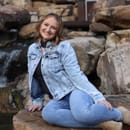As most college students enter college, the course of American Federal Government will normally pop up on their course schedule. Not only is it learning about the government that holds their civil liberties, but it changes most students from the high school view to the college view of politics, but with the nation, we live it, how hard is it teach these students without splitting the polarization more? I got to interview with Dr. Allen Hertzke, a professor of government and political science, who has been at the University of Oklahoma for 33 years after the Spring 2019 semester but was conducting a research project for the Pew Research Center and the John Templeton Foundation in Washington DC from 2008-2010. Through this interview, I got to ask him about the bias of class lectures, the future of the government, and the topics government students should focus on.
Image via UCS
The United States is known for, in the past years, on how polarized our political system is, but how can you teach students without being biased? Dr. Hertzke states that “it IS a challenge teaching American government in this era of deep partisan polarization and political acrimony. We all have biases, of course, but one advantage political scientists have is our drive to understand the empirical reality of politics.” Therefore, he makes sure that his team and him “provide empirical explanations for political phenomena, such as hyperpolarization and its consequences for our system, which enable students to be better-informed citizens”.
Another question that made me wonder to ask someone that understands how the government work is where they see the government going in 50 years. After everything that has happened so far in 2019, Dr. Hertzke says that “as to the nature of the American government in 50 years, that is impossible to predict. We do know that our citizenry will be far more diverse. As I mentioned in class, if our nation can sustain a vibrant and more civil democracy amidst that diversity, it will be a great achievement and model to the world. My hope is that your generation will lead the way in achievement.”
For college students, the one thing we need to strive for, in his words, is “critical thinking, especially in a social media environment saturated with misinformation and vitriol spread by trolls, ideologues, and foreign governments”. He says that the media is now covered in “disinformation and falsehoods that spread like wildfire through social media”.
When he is asked what issues affect college students, he replies with two: “barriers to upward mobility and social isolation”. With respect to upward mobility, rising college costs and student debt are obvious culprits, but they are indicators of a wider problem: the disproportionate advantages provided by wealth and privileged family backgrounds that exacerbate growing gulfs in our society between those who flourish in the global economy and those who struggle. Students, therefore, need to be strategic in college in preparing themselves for a rapidly changing world. This means developing the capacity to think critically, communicate lucidly, analyze problems, employ quantitative methods, and cultivate networks. It also entails deep historical and cultural knowledge, the capacity to understand and work with people of diverse backgrounds and cultures.
Dr. Hertzke main focus is on social isolation. “It contributes to personal depression and societal fractures. Developing deep personal relationships and finding depth and meaning beyond the self-seem to be critical both to mental health and societal flourishing. Thus, students should cultivate their ethical/spiritual selves, their empathy, and their appreciation for beauty and the arts. They should find and pursue outlets for a genuine commitment to others and to the commonweal.”
To learn more about Dr. Allen Hertzke, visit his website, http://www.ou.edu/cas/psc/faculty/hertzke.
In addition to learn more about his thoughts of teaching PSC 1113, watch this short video: https://mymedia.ou.edu/media/Instructor+Introduction%2C+Allen+Hertzke/1_ppyitwne.



